9F, Zhongrui Jumei Building, 68 Jiuzhang Road, Suzhou Industrial Park, Jiangsu Province
Company News
2023-2028 UK Hospital Clinical Observation Project
The UK is considered a leader in education, with four universities ranked in the top ten of the world's top universities. These achievements create a strong education system. The UK is also home to many of the world's top pharmaceutical companies, and pioneering medical research institutions place the UK at the forefront of global medical advancement, including primary care, medical devices, pharmacy and hospital management.
The United Kingdom's National Health Service (NHS) was established in 1948 to provide free health care services to all British citizens, regardless of wealth, age and health status. Over the following decades, the NHS continued to expand and improve, investing more resources and improving the quality of care. For example, in the late 1960s, the NHS established the world's first national cardiac surgery center to perform advanced heart surgery and provide better treatment options for heart disease patients. In the 1990s, the NHS was further reformed, introducing more market mechanisms and elements of competition to improve efficiency and reduce costs. At the same time, the NHS gradually expanded its coverage to provide health care services to more people. Today, the NHS has become one of the largest, most famous and most respected public health care systems in the world, and is one of the basic rights that British citizens are proud of.
Project hospital name
Oxford University Foundation NHS Hospital - John Radcliffe Hospital
Cambridge University Hospital-Addenbrooke's Hospital
papworth royal hospital
Royal London Hospital
St. Bartholomew's Hospital
National Hospital of Neurology and Neurosurgery
Guy's and St. Thomas National Medical Foundation
University College London Hospital
Starting time
October 2023
class schedule
Clinical observation training lasts for 12 weeks (time can be customized), every Monday to Friday from 8 am to 5 pm
Training method
Clinical face-to-face
training language
English, no translator
Project services
• Design medical projects with UK hospitals
• Accommodation (WiFi, billing, cleaning)
• Manage hospital human resources documents
• Issue visa invitation letter
• UK airport transfers
• London Underground Card
• medical insurance
• 24/7 emergency contact
• Provide free online medical terminology training
01 Oxford University Foundation NHS Hospital-John Radcliffe Hospital
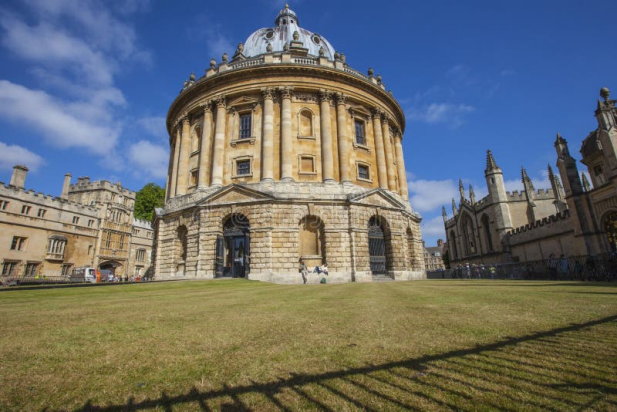
John Radcliffe Hospital is a member of Oxford University Hospitals NHS Foundation Trust and is Oxfordshire's main emergency centre. The hospital provides emergency and surgical services, including trauma, critical care and cardiothoracic services. The hospital is located in Hiddington, about three miles east of Oxford city centre. It is the Trust's largest hospital, covering approximately 66 acres and includes the Children's Hospital, Eye Hospital, Heart Centre, West Wing, and Women's Centre. West Wing Following the closure of Radcliffe Hospital and the amalgamation of other Oxford hospitals, Oxford underwent another major expansion and its facilities were procured through a Private Finance Initiative contract in 2003. The project was designed by Austin Smith and constructed by Carrion. It cost £134 million and was completed in December 2006. The new complex, known as the West Wing, houses the new Oxford Children's Hospital, Oxford Eye Hospital, Neuroscience/Head and Neck Department and Otolaryngology Department. At the end of November 2008, the Queen and the Duke of Edinburgh officially commemorated the completion of the new West Wing and Children's Hospital in a special ceremony attended by patients, staff, fundraisers and supporters, who raised $1,500 for the construction of the Children's Hospital. Thousands of pounds of funding. John Radcliffe Hospital also houses many departments of Oxford University Medical School and is home to the George Pickering Education Center and the training base for most of Oxford University Medical School's medical students.
Departments covered by the project
• Otolaryngology
• Obstetrics and Gynecology
• Hematology and Oncology
• Ophthalmology
• Endocrinology
• Neonatology
• Midwifery care
• Emergency Department
• Respiratory Medicine
• Anesthesiology
• Cardiology
• Orthopedics
• Oncology
• Intensive care/ICU
• Kidney and Organ Transplantation Department
• Kidney transplant surgery
• Dermatology surgery
• Dermatology Department
• Rheumatology
• Hematology
• Infectious diseases
• Interventional Radiology
• Vascular surgery
• Neuro-oncology
02Cambridge University Hospital-Addenbrooke's Hospital
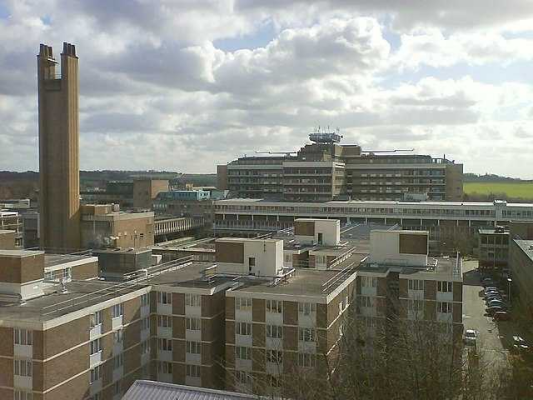
Addenbrooke's Hospital is a large, internationally renowned teaching hospital and research center located in Cambridge, England, with close ties to the University of Cambridge. It is a designated academic health sciences center under the auspices of Cambridge University Hospitals NHS Foundation Trust. It is also the main trauma center in the East of England and the first of its kind to open in the UK. Addenbrooke's Hospital is a designated major trauma center and the first fully operational regional major trauma center in England, and was featured in the 2013 BBC documentary series Life Savers. Addenbrooke's Hospital is a tertiary referral center for multiple specialties. It is one of seven liver transplant centers in the UK that can perform multi-organ transplants. It is a busy regional neurosurgery center with the largest neurointensive care unit in Europe. It is also a center of excellence for renal services, bone marrow transplantation, cleft lip and palate reconstruction, rare cancer treatment, medical genetics and paediatrics. Addenbrooke's Hospital is also a designated regional center for surgery for pancreatic, biliary tract and liver cancer, and a tertiary referral center for complicated pancreatitis. The hospital has 37 operating rooms and, in addition to the neuroscience (neurosurgery and neurology) intensive care unit, adult, pediatric and neonatal intensive care services, as well as multiple high dependency areas (adult, pediatric, transplant, surgical , coronary heart disease monitoring). It is also an internationally renowned transplant center. He has made many outstanding contributions to the world of transplantation.
Departments covered by the project
• Otolaryngology
• Obstetrics and Gynecology
• Hematology and Oncology
• Ophthalmology
• Endocrinology
• Neonatology
• Midwifery care
• Emergency Department
• Respiratory Medicine
• Anesthesiology
• Cardiology
• Orthopedics
• Oncology
• Intensive care/ICU
• Kidney and Organ Transplantation Department
• Kidney transplant surgery
• Dermatology surgery
• Dermatology Department
• Rheumatology
• Hematology
• Infectious diseases
• Interventional Radiology
• Vascular surgery
• Neuro-oncology
03Papworth Royal Hospital

The Royal Papworth Hospital is a specialist cardiopulmonary hospital located on the Cambridge Biomedical Campus in Cambridgeshire, England. The hospital is managed by the Royal Papworth Hospital NHS Foundation Trust. The hospital is a world-leading cardiothoracic transplant center and the largest in the UK, performing more heart and lung transplants in 2019/20 than any other hospital. Its subspecialties include: • Respiratory Support and Sleep Center for patients with sleep disorders (including common conditions such as obstructive sleep apnea and less common conditions such as narcolepsy) and ventilatory failure (due to chronic obstructive pulmonary disease or motor neurone disease) and neuromuscular diseases such as polio) provides services. The service provides non-invasive ventilation and also accepts referrals from other intensive care units to help wean patients off invasive ventilation; • Pulmonary Hypertension (PH) Service (Papworth is one of four pulmonary hypertension centers in the UK and the only one that provides Center for Pulmonary Thromboendarterectomy);• Adult Cystic Fibrosis Service;• Pulmonary Defense Service, for patients with recurrent lung infections, including those with bronchiectasis and immunodeficiency;• Thoracic Oncology (Lung Cancer) Service;• Total Ataxia telangiectasia service;• Pulmonary fibrosis, vasculitis and rare diseases (including granulomatosis with polyangiitis and pulmonary alveolar proteinopathies) service. • Cardiac surgery, including heart transplantation, coronary artery bypass grafting, heart valve surgery, and pulmonary thromboendarterectomy; • Thoracic surgery, including lung cancer resection and lung transplantation; • Cardiology, including coronary angiography and coronary Arterial angioplasty, as well as cardiac electrophysiology and catheter ablation, pacemaker implantation, implantable defibrillator, transcatheter structural cardiac surgery (such as valve implantation) • Critical care services
Departments covered by the project
• cardiology
• Pathology
• Radiology
• Respiratory medicine
• Respiratory Support and Sleep Center (RSSC)
• Intensive care and anesthesia
04Royal London Hospital
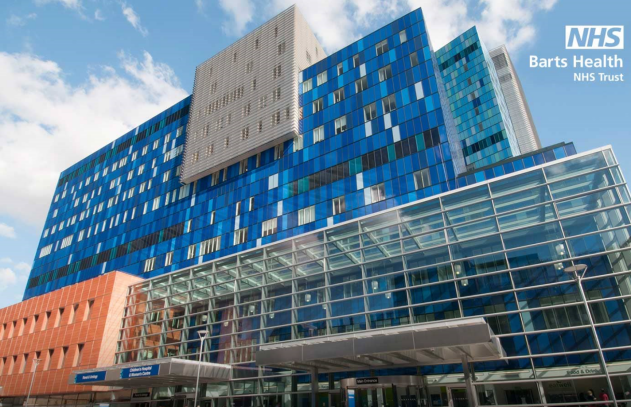
The Royal London Infirmary is a leading, internationally renowned teaching hospital located in East London. They provide a full range of local and specialist services, including one of the largest children's hospitals in the UK, with the busiest pediatric accident and emergency department in London. The Royal London Hospital is home to the London Air Ambulance and is one of the capital's leading trauma and emergency care centers and hyperacute stroke centres, also providing care for patients with orthopedic, renal, dermatological and sexual health conditions, as well as all major Acute Specialty. The Royal Infirmary is home to many international specialists and world-class specialist centres, from cancer, heart and digestive diseases to trauma and leading children's hospitals. Despite the complex nature of the cases it treats, the Royal Infirmary has one of the best survival rates in the NHS, a widely accepted measure of overall clinical excellence. Patient safety is of paramount importance at Barts Health NHS Trust and they have a good track record of proving this.
Departments covered by the project
• Otolaryngology
• Obstetrics and Gynecology
• Hematology and Oncology
• Ophthalmology
• Endocrinology
• Neonatology
• Midwifery care
• Emergency Department
• Respiratory Medicine
• Anesthesiology
• Cardiology
• Orthopedics
• Oncology
• Intensive care/ICU
• Kidney and Organ Transplantation Department
• Kidney transplant surgery
• Dermatology surgery
• Dermatology Department
• Rheumatology
• Hematology
• Infectious diseases
• Interventional Radiology
• Vascular surgery
• Neuro-oncology
05St. Bartholomew's Hospital
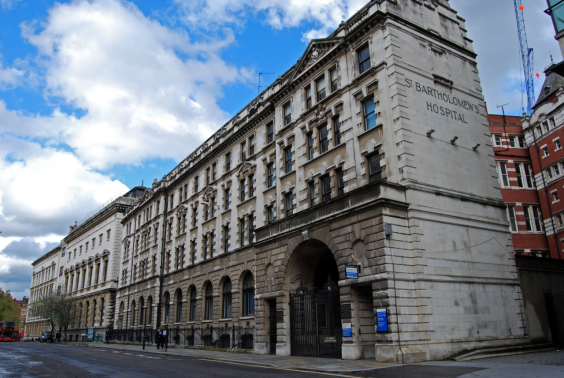
St Bartholomew's Hospital is a leading and internationally renowned teaching hospital in London. They provide a full range of local and specialist services and are a center of excellence for cancer and cardiac care. The state-of-the-art Barts Heart Center and Barts Cancer Center are both located in the King George V Department of the hospital and are also home to one of the busiest cardiac centers in the UK. St. Bartholomew's Hospital's list of innovative services includes robotic surgery and sophisticated electrophysiology, and they are a leading provider of stem cell transplants and immunotherapy for cancer treatment. St Bartholomew's Hospital also has a number of additional services, including specialist maternity services, minor injuries units and outpatient services. St Bartholomew's Hospital is the oldest hospital in Britain still occupying the site on which it was originally built. This place has been providing medical services since 1123, when it was founded by Rahere, a favorite of Henry I. The dissolution of the monasteries did not affect the functioning of St Bartholomew's Hospital, and in December 1546 King Henry VIII signed an agreement awarding the hospital to the London Company to re-establish it. While the hospital built a theater in the early part of the century for lecturers to give lectures, in 1843 St. Bartholomew's Hospital Medical School was established to train medical staff. In 1995, the college merged with the college affiliated with the Royal Hospital of London to form Queen Mary University of London. St. Bartholomew's Hospital continues to embody excellence in its School of Medicine and its important research and teaching facilities. It is part of the Barts and London NHS Trust, along with the Royal London Infirmary and the London Chest Hospital. St Bartholomew's Hospital has 388 beds, the Royal London Hospital has 675 beds and the London Chest Hospital has 109 beds. These hospitals merged with Whips Cross Hospital and Newham Hospital on 1 March 2012 to form Barts Health NHS Trust, the largest in the UK.
Departments covered by the project
• Cardiothoracic surgery
• Thoracic Surgery/ICU Nursing
• Reproductive Medicine/In vitro fertilization
• Orthopedics
06National Hospital of Neurology and Neurosurgery
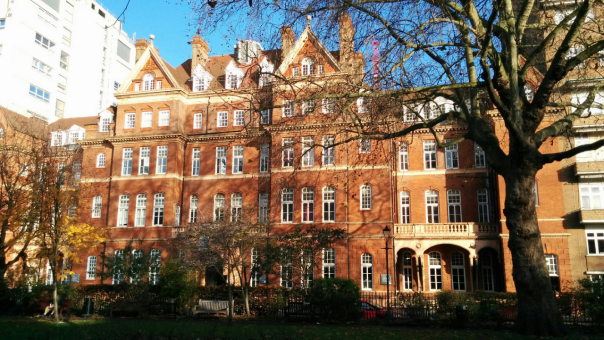
National Hospital of Neurology and Neurosurgery The National Hospital of Neurology and Neurosurgery (NHNN) in Queen Square is the UK's largest specialist hospital for neurology and neurosurgery. It provides comprehensive diagnostic, treatment and care services for all conditions affecting the brain, spinal cord, peripheral nervous system and muscles. Its services include specialist neurosurgery, brain oncology, hyperacute stroke unit (HASU), acute brain injury unit, national prion clinic, pioneering neurorehabilitation unit, the UK's first interventional MRI scanner, the largest Professional neurosurgery ITU and the only neuromedicine ITU in the country. Together with its neighbor UCL Queen Square Institute of Neurology, it forms an important international research and training center.
Departments covered by the project
• Neurology
• Neurological care
07 Guy and St. Thomas National Medical Foundation
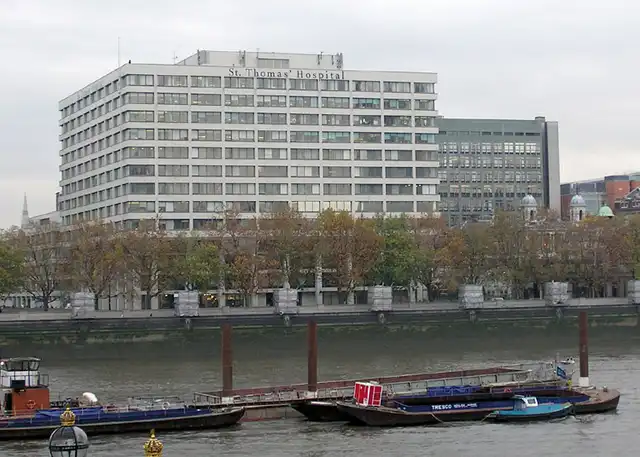
Guy's and St Thomas' NHS Foundation Trust is an NHS Foundation Trust and part of the prestigious Shelford Group. It operates Guy's Hospital in London Bridge, St Thomas' Hospital in Waterloo, Everina London Children's Hospital, two specialist heart and lung hospitals, Royal Brompton and Harefield as well as Lambeth, Southwark and Ley Community service in Wesson. The hospital has a long and proud history. St Thomas' Hospital was founded in 1100, Guy's Hospital in 1720, Royal Brompton Hospital in the 1840s, Everina Children's Hospital in 1869 and Harefield Hospital in 1915. They are world-renowned not only for their exceptional quality of care, but also for their groundbreaking research, innovation and teaching. The hospital's staff continue to live up to these pioneering traditions through their commitment to clinical excellence and world-leading research.
Departments covered by the project
• Emergency Department
• Respiratory Medicine
• Anesthesiology
• Obstetrics and Gynecology
• Cardiology
• Oncology
• Intensive care/ICU
• Kidney and Organ Transplantation Department
• Kidney transplant surgery
• Dermatology surgery
• Dermatology Department
• Rheumatology
• Hematology
• Infectious diseases
• Interventional Radiology
• Vascular surgery
08University College London Hospital
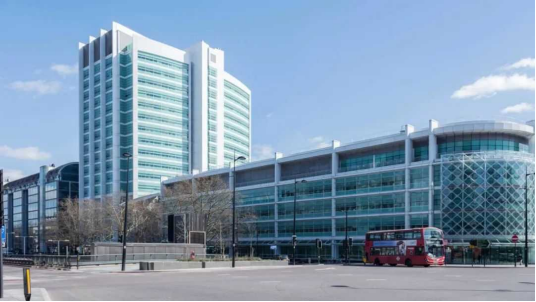
University College London (UCL) Global Health Business School is an expert in global health. UCL is an established university ranked in the world's top ten and a global leader in research and enterprise in medicine, health and education. This makes UCL an ideal home for the world's first business school dedicated to health. With its recognized critical thinking and wide-ranging influence, UCL strives for the long-term interests of mankind and is committed to practical impact and improvement of society. The term health spans all subject areas at UCL, with half of the university's staff engaged in research in the field of global health and human well-being. University College London Hospitals NHS Foundation Trust (UCLH) is an NHS foundation trust located in London, United Kingdom. It includes University College Hospital, University College Hospital in Westmorland Street, UCH Macmillan Cancer Centre, Royal National Hospital of Otolaryngology and Eastman Dental Hospital, Hospital of Tropical Diseases, National Hospital of Neurology and Neurosurgery, Royal London General Hospital and the Royal National Hospital of Throat, Nose and Ear. The hospital treats more than 500,000 outpatients and admits more than 100,000 patients each year. In collaboration with University College London, UCLH carries out a number of research activities as part of the UCLH/UCL Biomedical Research Center and UCL Partner Academic Health Sciences Centre. It is also a major teaching center and works with City University London, King's College London, London South Bank University and UCL Medical School to provide training for nurses, doctors and other health professionals.
Departments covered by the project
• Obstetrics and Gynecology Oncology
contact us
Jiang Jun13771758095
jjiang@evomt.com
Ji Yuxin 18001541117
yxji@evomt.com
Chen Jiahao 13771954400
jhchen@evomt.com
Han Huimin 19534120331
hmhan@evomt.com
Yuan Zhenjiang 13523487223
zjyuan@evomt.com
Bi Qilin 13875950393
qlbi@evomt.com

